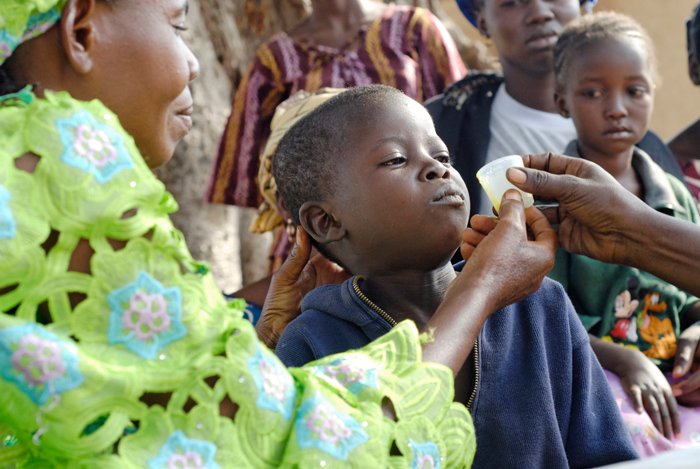Malaria - 10 stories that mattered in access to medicines in 2011

Dec 28, 2011
“It’s good to get ACTs out there, but we mustn’t neglect the need to get a confirmed diagnosis in the rush to lower prices for the medicines"
- Dr. Martin DE SMET, MSF Malaria Working Group
An experimental scheme to subsidise malaria treatment gets off to a shaky start
Cost is the main reason why many people in Africa aren’t buying a more effective treatment now available for malaria. But a scheme set up to address the issue doesn’t seem to be delivering all the right results.
The World Health Organization first stated that medicines based on artemisinin – ACTs – should be used to treat malaria back in 2001, after studies showed widespread resistance had developed to the older drugs, such as chloroquine.
However, the newer recommended drugs are considerably more expensive. Public hospitals and clinics throughout Africa now provide the medicines but these services are not accessible enough everywhere. Many people therefore buy their medicines themselves, often resorting to the cheaper, older drugs that are no longer effective.
So the aim of the Affordable Medicines Facility-malaria (AMFm), was to subsidise the prices of ACTs in the private sector where many people get their medicines: in shops and private pharmacies.
The pilot scheme was launched across eight African countries and initial surveys show that the price of ACTs has come down significantly as a result.
But the launch ushered in a new set of problems: a rush on orders for the subsidised medicines – in some countries, for amounts far exceeding needs – triggered a three-fold rise in the price of the raw materials for the medicines, as people feared the raw materials would run out. No shortages have materialised but the prices of the final products, the drugs, have increased.
A further concern is that because the AMFm is targeting mainly private shops, people are buying and using ACTs without first getting a test to confirm that they have malaria. This means ACTs are being used unnecessarily which can lead to the malarial parasite developing resistance to the drugs. And it also puts the patients’ health at risk because, without a correct diagnosis, they are taking medicines that may not treat the illness they are actually suffering from.
There have definitely been some wobbly first steps for this experiment and it won’t be clear for a while whether the AMFm will reach people in the poorest and most remote regions – or indeed, if it will have an overall positive health impact.
- Dr. Martin DE SMET, MSF Malaria Working Group
An experimental scheme to subsidise malaria treatment gets off to a shaky start
Cost is the main reason why many people in Africa aren’t buying a more effective treatment now available for malaria. But a scheme set up to address the issue doesn’t seem to be delivering all the right results.
The World Health Organization first stated that medicines based on artemisinin – ACTs – should be used to treat malaria back in 2001, after studies showed widespread resistance had developed to the older drugs, such as chloroquine.
However, the newer recommended drugs are considerably more expensive. Public hospitals and clinics throughout Africa now provide the medicines but these services are not accessible enough everywhere. Many people therefore buy their medicines themselves, often resorting to the cheaper, older drugs that are no longer effective.
So the aim of the Affordable Medicines Facility-malaria (AMFm), was to subsidise the prices of ACTs in the private sector where many people get their medicines: in shops and private pharmacies.
The pilot scheme was launched across eight African countries and initial surveys show that the price of ACTs has come down significantly as a result.
But the launch ushered in a new set of problems: a rush on orders for the subsidised medicines – in some countries, for amounts far exceeding needs – triggered a three-fold rise in the price of the raw materials for the medicines, as people feared the raw materials would run out. No shortages have materialised but the prices of the final products, the drugs, have increased.
A further concern is that because the AMFm is targeting mainly private shops, people are buying and using ACTs without first getting a test to confirm that they have malaria. This means ACTs are being used unnecessarily which can lead to the malarial parasite developing resistance to the drugs. And it also puts the patients’ health at risk because, without a correct diagnosis, they are taking medicines that may not treat the illness they are actually suffering from.
There have definitely been some wobbly first steps for this experiment and it won’t be clear for a while whether the AMFm will reach people in the poorest and most remote regions – or indeed, if it will have an overall positive health impact.





Leave a Comment